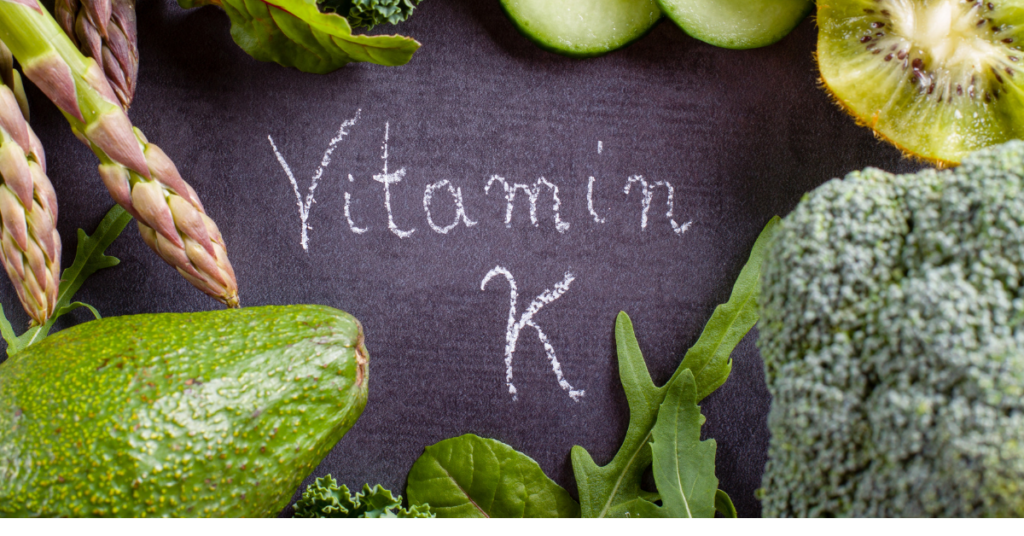Introduction
Vitamin K, frequently not noted in nutrients, is vital in retaining blood clotting and bone health. Clotting is crucial because it prevents immoderate bleeding. But, at the same time, as blood clots block the glide of blood to vital factors of your body, it can become unstable and stop the formation of blood clots. You might also take cinnamon in small quantities, like in tea or cookies; extra use can cause liver harm. It would help to include different spices and herbs in the day-by-day weight loss program, including curry, thyme, turmeric, paprika, cayenne, mint, ginger, anise, etc. As they are anti-inflammatory and save you from immoderate clotting.
The Importance of Vitamin K in Blood Clotting
Blood clotting, also known as coagulation, is a complex device that inhibits extra bleeding at the same time as we get injured. Without this mechanism, even a tiny cut must cause existence- intimidatory consequences. Vitamin K is essential in this system by activating numerous clotting elements.
How Does Vitamin K Help with Blood Clotting?
Activation of Clotting Proteins: Vitamin K is critical for activating clotting proteins, essentially prothrombin and elements VII, IX, and X. These proteins are essential for forming blood clots in replay to damage.
Fibrin
Vitamin K also contributes to the formation of fibrin, a protein that creates a mesh-like form to entice blood cells and shape a firm clot.
Preventing Hemorrhages
By assuring the right strolling of those clotting factors, Vitamin K saves you from hemorrhages, which can be mainly satirical at some point of surgery or accident.

The result of Vitamin K Deficiency in Blood Clotting
A deficiency in Vitamin K can result in a scenario referred to as a hemorrhagic disorder of the brand new child in toddlers, in which bleeding can stand uncontrollably. In adults, Vitamin K deficiency can result from various factors, which include horrible nutritional consumption, high-quality medicinal drugs, or scientific situations like liver ailment. Without Vitamin K, blood clotting will become defective, increasing the hazard of immoderate bleeding, smooth bruising, and persistent clotting times.
Vitamin K’s Contribution to Bone Health
Osteocalcin Activation
Osteocalcin is a protein that binds calcium to the bone matrix, strengthening bone density. Vitamin K activates osteocalcin, successfully permitting it to carry out its bone-constructing capabilities.
Inhibition of Calcium Deposits
Vitamin K also helps save you from the buildup of excess calcium in mild tissues, including blood vessels and joints. This can protect you from conditions like arterial calcification, which can bring about heart problems.
Synergy with Vitamin D
Vitamin K works synergistically with Vitamin D, each critical nutrient for bone health. Together, they guide calcium absorption and usage, ensuring that it’s miles deposited in bones instead of smooth tissues.
The Impact of Vitamin K Deficiency on Bone Health
Vitamin K deficiency can weaken bones and increase the risk of fractures. Individuals with insufficient Vitamin K ranges may also experience reduced bone mineral density, predominant in situations like osteoporosis. This makes bones more susceptible to fractures and decreases standard bone power.
FAQs: Frequently Asked Questions
1. Can I get enough Vitamin K from my diet alone?
1. Can I get sufficient Vitamin K from my diet regime?
While some Vitamin K may be attained via dietary sources like leafy inexperienced greens (kale, spinach, broccoli), getting a sufficient amount from food may be challenging. Supplements may be advocated for humans prone to deficiency.
2. Are there great types of Vitamin K?
There are two foremost forms of Vitamin K: Vitamin K1 (phylloquinone), observed in plant-based ingredients, and Vitamin K2 (menaquinone), produced via bacteria in the intestine and determined in animal-based and fermented elements.
3. Is there an endorsed dietary intake of Vitamin K?
The supported everyday intake of Vitamin K varies on age and gender; however, for adults, it usually tiers from 90 to hundred 20 micrograms.
Can Vitamin K nutritional supplements engage with medicinal capsules?
Vitamin K supplements may interplay with high-quality medicines, particularly blood thinners like warfarin. Visiting a healthcare professional before starting any new supplement habit is essential.

Conclusion
In short, vitamin K performs a critical role in blood clotting and bone health. These components avert the sticking of the platelets and consequently avoid clots. Fish and flax omega-three fatty acids are incredibly beneficial to the body as they prevent strokes and blood clots. Ingesting 1.8 grams of it every day can drastically beautify the go with the flow of blood and decrease the thickness of arteries. Fish is the most adequate deliverer of omega-3 fatty acids, mainly trout, salmon, anchovies, herring, and mackerel. Vegetarians and those who do not like fish can get their omega-3 fatty acids from sunflower and flax seeds. Nuts and entire grains meals rich in vitamin E are anticoagulants. It minimizes the danger of having the primary blood clot, or if you already have one, it prevents you from developing more clots.

